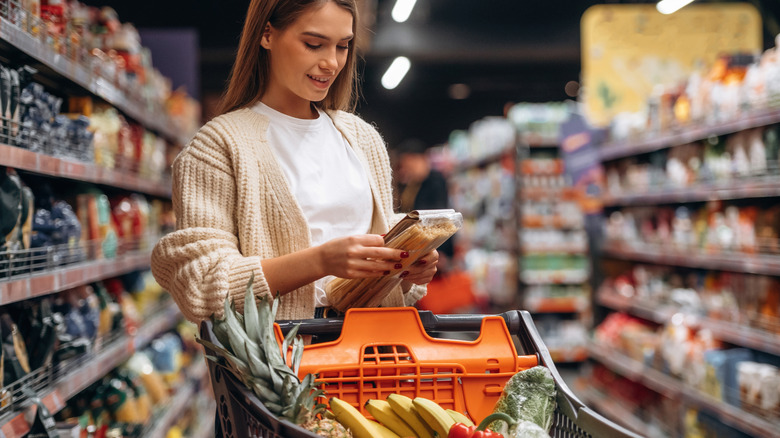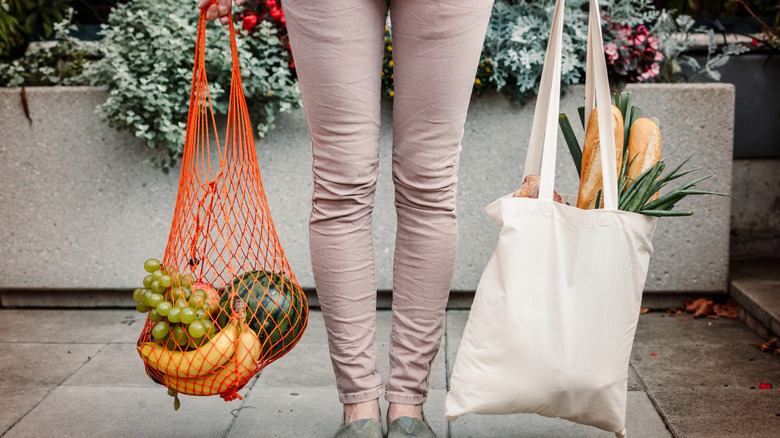Rick Steves Advises Tourists To Be Aware Of This Common European Supermarket Etiquette
European supermarkets have a few quirks that may catch first-time shoppers off guard. If you want to take a cart, you often have to insert a coin. Eggs are rarely kept in the fridge, and milk is often in a strange spot, too. At the checkout, you bag your own groceries, and you pay for the privilege because the bags don't come for free. While many Americans are now used to paying for shopping bags, the European response is simply not to. No, they're not sneaking out with unpaid bags; they're following common etiquette that Rick Steves says you should follow, too.
Writing on his website, Steves says, "Bring your own shopping bag, use your empty daybag, or expect to pay extra for the store's plastic bags." In Europe, it's standard practice to bring your own cloth bag for packing groceries. If you forget to bring one from home, tote bags make a great, useful souvenir.
You might be wondering how much you'll pay for a plastic bag. In Germany, you'll pay between $0.12 and $0.60 for a plastic bag and up to $2.40 for a cloth bag in supermarkets, and prices are similar across Europe. The addition to your bill may seem relatively minimal, but it adds up, financially and environmentally. Plus, you'll fit in with the locals a lot better if you produce your reusable tote at the checkout.
Other things to know about European supermarkets
As we mentioned, you bag your own groceries in Europe, and Rick Steves has advice about this, too. "No one will bag your groceries for you; expect to bag and pay at the same time," he writes, adding, "It's smart to start bagging immediately to avoid frustrating the shoppers behind you." Whip out your shopping bag quickly and start loading!
Another plastic-related issue to watch out for comes in the fruit and vegetable aisles. In certain U.K. supermarkets, plastic produce bags aren't provided, so bring your own or go without. You'll also find quite a lot of loose, unwrapped produce, as stores try try to cut back on single-use plastic. However, there's one area you will find plastic: In the bakery aisle, you'll need to follow an unspoken glove rule, wrapping your hands before selecting your baguette.
Once you've got your head around these idiosyncrasies, you're ready to stock up on some goodies. But you might hit another roadblock, especially if you head to the shops on a Sunday. Shopping hours are one of the biggest differences between European and U.S. supermarkets. This is particularly true in Central Europe, with larger grocery stores in Germany, Austria, Switzerland, and Poland all closed on Sundays. Even in places where stores are open, like the U.K., Sunday trading hours may be shorter. So, if you're heading to the supermarket in Europe, bring a bag and make sure to check the opening hours first.

